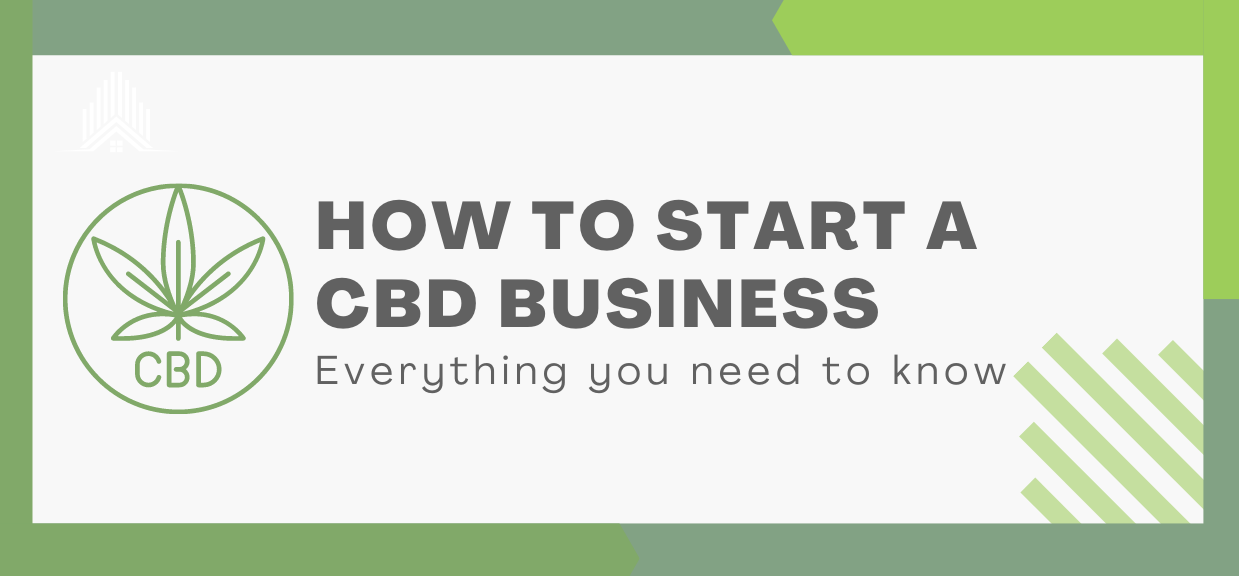How to start a CBD business: Everything you Need to Know
The ultimate guide on how to make and sell CBD products online.

Do you want to start a CBD business? Great! In this post, we will discuss everything you need to know about starting a CBD business. We will cover topics such as choosing the right CBD products to make, obtaining the necessary licenses and permits, and building a website that allows you to sell your CBD products to the world.
Need to get your raw material and product inventory under control?
Try Craftybase - the inventory and manufacturing solution for DTC sellers. Track raw materials and product stock levels (in real time!), COGS, shop floor assignment and much more.
It's your new production central.
What is CBD?
When it comes to CBD, there is a lot of confusion out there. CBD is short for cannabidiol, a compound found in cannabis plants. Unlike THC, CBD does not have any psychoactive effects, meaning it won’t make you high. However, CBD has been shown to have a variety of potential health benefits, including reducing anxiety and pain relief. As a result, CBD products have become increasingly popular in recent years.
However, it’s important to keep in mind that CBD is still federally illegal in the US. In 2018, the Farm Bill legalized hemp-derived CBD products at the federal level. However, each state has the right to create its own laws around CBD. As a result, CBD laws can vary widely from state to state. For example, some states may only allow the sale of CBD products with trace amounts of THC, while others may have no restrictions at all. This is why it’s so important to know your state’s laws before selling CBD products.
CBD products are becoming more and more popular as people learn about the potential health benefits of CBD. In fact, the CBD industry is expected to grow to $22 billion by 2024.
More and more people are looking for natural ways to address health concerns, and CBD has been shown to provide a number of potential health benefits - so demand is continuously growing. Selling CBD products can be a very profitable business venture. With the right approach, you can tap into a rapidly growing industry and make a significant profit.
CBD regulations you’ll want to note
Before you start selling CBD, it’s important to familiarize yourself with the regulatory landscape. CBD is currently regulated at the federal level by the US Food and Drug Administration (FDA).
The FDA has not yet issued specific regulations for CBD products, but they have issued guidance on a few key points. First, they’ve stated that all CBD products must be labeled as dietary supplements. Second, they’ve said that CBD cannot be added to food or beverage products. And third, they’ve prohibited companies from making claims about the health benefits of CBD.
While the FDA’s regulations are currently fairly limited, they’re expected to change in the future as more research is done on CBD. In the meantime, it’s important to stay up-to-date on the latest regulations and make sure your CBD business is in compliance.
It’s also important to note that in most states in the US, CBD products must be derived from hemp plants and not marijuana plants and the THC content in CBD products must be 0.3% or less. All CBD products must be lab-tested to ensure that they meet these regulatory requirements if they apply to your business.
When it comes to CBD products, it’s also important to steer clear of making any medical claims. CBD is still a relatively new compound, and there is a lot that scientists don’t yet know about it. As a result, it’s not possible to say definitively whether or not CBD can treat or cure any specific condition. Making claims about CBD’s medical benefits could lead to unwanted legal trouble, and it could also give customers false expectations about what CBD can do for them. It’s always best to err on the side of caution when it comes to making statements about CBD’s effects. instead, focus on promoting the general wellness benefits of CBD, such as its ability to help reduce stress and promote relaxation. By avoiding any concrete medical claims, you’ll be able to sell CBD products more safely and avoid running into any legal problems.
How to choose the right CBD products to make and sell
The CBD market is growing rapidly, and chances are good that you’re considering entering the CBD space as a seller. But with so many products on the market, how can you choose the right ones to make? Here are a few things to keep in mind as you select CBD products for your business.
First, it’s important to understand the different types of CBD products available. CBD can be ingested orally, inhaled, or applied topically. Each method has its own advantages and disadvantages, so it’s important to understand how each type of product works before selecting one to make.
Second, consider the source of the CBD. Is it derived from hemp or marijuana? Hemp-derived CBD is legal in all 50 states, while marijuana-derived CBD may only be legal in certain states. This is an important distinction to keep in mind when selecting products to make.
Third, think about what kind of customer you’re targeting. Are you selling to people who want to use CBD for wellness purposes? Or are you targeting athletes and other people who want to use CBD for performance enhancement? The kind of customer you’re targeting will dictate the kind of product you should make.
Finally, know your market. What kinds of CBD products are selling well in your area? What do customers seem to be looking for? Offering products that meet customer demand is a surefire way to success in the CBD space.
Here are some examples of CBD products you could make to sell:
CBD tinctures
Tinctures are a great way to get your daily dose of CBD, and they can be easily added to any beverage or taken on their own. Simply add a few drops of your favorite CBD tincture to a glass of water or your morning coffee, and you’re good to go.
CBD edibles
Edibles are another popular way to consume CBD, and they’re perfect for those who don’t like the taste of CBD oil. You can infuse virtually any food or drink with CBD, from gummies and candy to cookies and cakes. Simply add the desired amount of CBD oil to your recipe, and you’re good to go.
CBD topicals
Topicals are ideal for those looking for targeted relief from pain, inflammation, or other skin conditions.
CBD packaging requirements
Now that you know what kinds of CBD products you want to sell, it’s time to start thinking about packaging. Proper packaging is essential for any CBD product, as it helps to ensure quality control and protect the product from damage. When selecting packaging for your CBD products, there are a few things you’ll want to keep in mind.
First, make sure the packaging is child-resistant. This is especially important for products that come in liquid form, as children may be tempted to drink them. Child-resistant packaging will help to prevent accidental ingestion of CBD products.
Second, choose packaging that protects the product from light and air. UV light and oxygen can degrade the quality of CBD over time, so it’s important to choose packaging that minimizes exposure to these elements. dark glass bottles or jars are ideal for this purpose.
Third, select packaging that clearly displays the amount of CBD in each product. This will help customers understand how much CBD they’re taking and allow them to adjust their dosage as needed. Clearly labeling CBD content will also help you avoid any legal trouble down the road.
When it comes to CBD packaging, child-resistant, dark, and clearly labeled are the way to go.
Selling CBD online
If you’re planning on selling CBD online, there are a few things you’ll need to do in order to get started. First, you’ll need to set up a website for your business. This will be the platform on which you sell your products and interact with your customers.
You’ll also need to choose a payment processor. This is the company that will handle transactions for your business. There are a number of different payment processors out there, so it’s important to do some research and choose one that’s reputable and has experience working with businesses in the CBD space.
It’s also important to ensure you are tracking your CBD raw materials and finished product inventory accurately to avoid stockouts and huge manufacturing lead times. Using an inventory product designed specifically for small batch manufacturers (such as Craftybase MRP) is a wise move to make sure you start off on the best footing.
CBD is a promising new industry with a lot of potential. By following these simple tips, you can start your own CBD business and be on your way to success. Just remember to research the regulatory landscape and stay up-to-date on the latest changes to ensure your business is compliant. Thanks for reading! I hope this was helpful. :)
